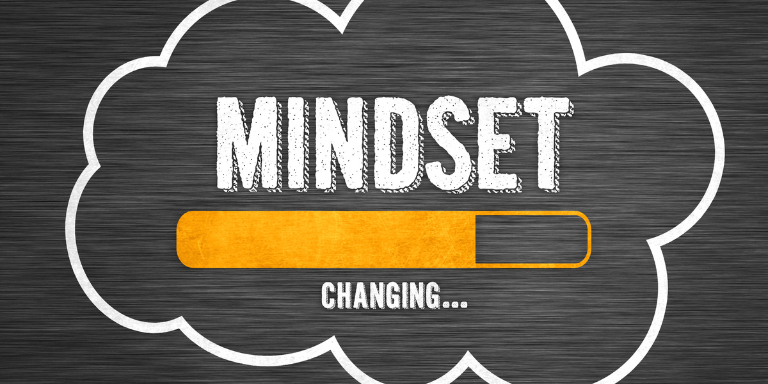Confidence issues can hold us back from reaching our full potential. Whether it’s applying for a job, making new friends, or simply trying new activities, self-confidence can drive or hinder our success.
Unfortunately, however, many people struggle with confidence issues, feeling as though they’re not capable, talented, or worthy enough to achieve their dreams.
The good thing is that confidence can be learned and cultivated over time. In this article, we will describe practical strategies to help you step into a more empowered version of yourself. By understanding the causes of your self-doubt, adopting a growth mindset, and learning from your experiences, you can gradually build up your confidence and achieve your goals. We’ll also touch on how facing things that scare you can be a powerful tool for boosting self-confidence.
So, let’s get on this journey together to conquer self-doubt and unleash the inner warrior within each of us.
Identifying Personal Confidence Challenges
Recognizing your confidence challenges is the first step in overcoming them.
To do this, start by reflecting on areas in your life where you often feel insecure or hesitant. Consider situations that make you uncomfortable, such as speaking in public, asserting yourself in a group, or taking on new responsibilities.
Next, take some time to think about any past experiences that may have contributed to your confidence issues. These could include criticism from others, past failures, or moments when you felt judged or rejected. Identifying these experiences can help you understand the root causes of your self-doubt.
Finally, write down the specific areas where you’d like to improve your confidence.
By pinpointing these challenges, you can develop targeted strategies to tackle them. It’s important to physically write them down because it allows you to take an outside viewer’s perspective. Remember, self-awareness is key to growth, so be honest with yourself as you identify your confidence challenges.
What Can You Do To Improve Your Confidence?
Building Self-Trust

The first thing you must understand is that to feel confident, you must be able to trust yourself. To achieve that, you have to hold promises that you give to yourself.
If you say you won’t stay up until 2 am to watch tv, keep the promise. If you say that you won’t eat that cookie, keep the promise. The same goes for screen time limitations, jogging routines, cleaning up your room, and all the other annoying little things. This doesn’t mean you have to live like a fitness model; it just means that if you set a goal, be persistent, and keep your promises. This is indeed essential to look in the mirror and be sure you have control over your decisions and actions.
How could you be confident in your abilities if you can’t even trust yourself with little things?
If you feel like you can’t rely on your own promises and that you should improve your self-trust, there are many ways to reach that. Here are some areas where you can train to trust yourself:
Eating Habits
You can train self-trust daily by achieving small goals related to healthy food decisions. For example, you could choose to buy healthy snacks today instead of chips and sweets. If you struggle with this, start low and just delay the time of consumption. So rather than eating the chips right when you feel like it, tell yourself: “I’m going to wait 10 minutes before I start snacking.” By doing this and keeping your promise, you can already learn to rely on your discipline and improve self-trust step-by-step.
Workout Routine
Another good way to train self-trust is by developing a workout routine. There are numerous benefits of regular exercise. Most people only consider the physical factors of working out, but the mental aspects are even more remarkable. Nothing in everyday life is quite as challenging as sticking to a workout routine and doing so is immensely valuable for self-trust. Of course, finding the motivation to work out is hard, but that is precisely why the benefits are so significant.
You don’t even have to go to a gym too often; just start with a short workout or jog once a week. Alternatively, you could look for a gym station. That way, you could train comfortably at home and whenever you want.
TV / Screen Time
Setting goals for your maximum screen time per day is a good way to train self-trust and become more productive at the same time. So check your unproductive screen time daily, and promise to cut it in half.
Cleaning Up Your Room
Psychologists say that a clean room equals a clear mind. Tidying up your home regularly sets the betting stone for growth.
Becoming more confident, in a sense, means becoming a trustworthy, reliable adult, and few things send a clearer signal of that to yourself than a tidy home.
Reading Books
Reading a couple of pages daily can work for you in two ways. First, again, you develop a routine to work on your self-trust. But additionally, you learn a lot as the months go by. Becoming more understanding of the world and gaining knowledge in various aspects of life significantly increases confidence.
Stretching Out
Stretching out is a good habit to end your day or finish a workout. You could, for example, decide to learn the splits. Once you reach such a difficult goal, you’ll have gained a lot of belief in yourself!
Practicing An Instrument
Learning an instrument can calm you down daily while improving your discipline. It’s more complicated than it looks!
Conclusion
As you see, trusting yourself is often coupled with self-discipline. You can gain a ton of self-trust by keeping your promises, tiny as they may be. And this will absolutely improve confidence.
Doing Things That Scare You

Doing things that scare you can really help with your confidence issues. When you face your fears, you learn you can do more than you thought. When we’re scared, we often think we can’t handle it. But when we try, we prove to ourselves that we can. And that’s a great feeling!
Each time you do something scary, it’s like giving your confidence a little boost. You start to believe in yourself more and more. It’s like learning to ride a bike. At first, it’s scary, but after a while, you get the hang of it and feel great.
So, never be afraid to step out of your comfort zone. Trying new things and facing your fears can make you feel strong and proud. And the more you do it, the easier it gets. In the end, you’ll find that you can tackle challenges and be a braver, more confident you.
Here are some challenging things you could try:
Exposing Yourself To Hights
Most people are terrified of heights. When you try high-up activities like climbing or bungee jumping, you can effectively boost your self-confidence. These thrilling experiences are scary but teach you a lot about yourself. They show you that you’re braver and stronger than you think.
Climbing, for example, is a wonderful way to face your fears. When you climb, you learn to trust your body and mind. You discover that you can push yourself and overcome obstacles. Each time you tackle a new route, you feel proud and more confident in your abilities.
Bungee jumping can be super scary, but it’s also a fantastic way to build confidence. Taking that leap is a big challenge, but you realize you can face your fears head-on once you do it. Knowing you did something brave, you feel so alive and excited after the jump.
Other high-up activities, like zip-lining or skydiving, can also help boost your self-confidence. As you face your fear of heights, you learn to trust yourself and your abilities. These experiences can be life-changing, showing you that you can conquer your fears and become more confident in the process.
So, don’t be afraid to try these exciting activities. They can be scary, but they’re also amazing opportunities to grow and learn about yourself. Each time you challenge yourself, you become more and more confident. So go on, reach for the sky, and discover the brave, confident person you can be.
Trying Martial Arts
Martial arts can also be a beneficial tool for boosting self-confidence. These ancient practices not only help to improve physical strength and agility but also foster mental resilience. Engaging in an activity that involves physical contact with other humans and learning how to defend yourself in bad situations develops self-respect and confidence.
On top, it’s a lot of fun and can add variety to your exercise routine. Combine martial arts training and some home workouts, and you’ll soon be in the best shape of your life.
Training in martial arts teaches discipline, focus, and perseverance. As you progress and master new techniques, you’ll gain a sense of accomplishment and belief in your abilities.
By incorporating martial arts into your journey to overcome confidence issues, you’ll not only enhance your physical well-being but also nurture your mental and emotional strength.
Facing Your Confidence Challenges
Facing your confidence challenges over and over again is the absolute best thing you can do for your confidence. You must become really good at everything that scares you; that’s the only way to overcome the fear.
Public speaking, for example, can be pretty scary, but it’s fantastic to build your self-confidence. When you speak in front of others, you learn to express your ideas and share your thoughts. As a result, you improve and feel more sure of yourself each time you do it.
Asserting yourself in a group can be tough, but it’s important to do. When you stand up for your beliefs, you show others that your opinions matter. You also learn that you can handle disagreements and different points of view. This helps you feel more confident in yourself and your ideas.
Taking on new responsibilities is another way to boost your confidence. When you try new tasks, you learn new skills and grow as a person. You might find that you’re good at things you never thought you could do. As you face these challenges, you become more confident in your abilities.
So, whatever you struggle with, don’t be scared to face your personal confidence challenges. They can help you become a stronger, more confident person. The more you try, the better you’ll feel about yourself. So, keep pushing yourself and remember that you can do amazing things. Ultimately, you’ll be glad you took on these challenges and found your true, courageous self.

Overcoming Confidence Issues By Building A Growth Mindset
Developing a growth mindset is crucial in overcoming confidence issues. A growth mindset believes your abilities can be improved through hard work, perseverance, and learning from your experiences. This mindset helps you embrace challenges, see setbacks as opportunities, and focus on progress rather than perfection.
To build a growth mindset, start by recognizing that everyone has the potential to grow and improve. Remember that facing obstacles and making mistakes is natural – valuable lessons that contribute to your development.
Next, practice setting realistic goals, celebrate your small victories along the way, and affirm your successes. This will help you build momentum and reinforce your belief in your capabilities.
Lastly, cultivate a curious and open-minded attitude. Embrace new experiences, ask questions, and seek feedback from others. By fostering a growth mindset, you’ll be better equipped to face your confidence challenges.
Seeking Support from Others
Seeking support from others is an essential aspect of overcoming confidence issues. Having a network of friends, family, and mentors who believe in you can make a significant difference in your journey toward self-assurance.
Begin by reaching out to people you trust and sharing your struggles with them. They can offer encouragement and advice and even share their own experiences with confidence issues. Knowing that others have faced similar challenges can help you feel less alone and more motivated to conquer your self-doubt.
Lastly, don’t hesitate to seek professional help if needed. Therapists or counselors can provide useful guidance and tools to help you address the underlying causes of your confidence issues. Remember, seeking support is a sign of strength, not weakness.
Embracing Failure and Learning from Mistakes
Embracing failure and learning from mistakes are essential steps in overcoming confidence issues. Recognizing that setbacks are part of personal growth can help you develop resilience and a more positive attitude toward challenges.
Change your perspective on failure. Instead of seeing it as negative or embarrassing, view it as a learning opportunity. Each mistake brings valuable insights that can help you grow and improve.
When facing setbacks, take the time to analyze what went wrong and identify lessons you can apply in the future. This reflection process helps you turn failures into stepping stones toward success.
So if, for example, you didn’t find the gym motivation to work out, don’t beat yourself up about it, but rather analyze what went wrong, adjust, and grow from the setback.
Celebrate your small victories, no matter how minor. Acknowledging your accomplishments can boost your self-esteem immensely and motivate you to keep pushing forward.
By embracing failure and learning from mistakes, you’ll gradually build your confidence and develop the resilience needed to tackle life’s challenges.
Conclusion
In conclusion, overcoming confidence issues is a journey that requires discipline, patience, persistence, and self-awareness. By understanding the causes of your self-doubt, identifying your personal challenges, and adopting a growth mindset, you can build a more confident version of yourself. Remember to embrace failure as an opportunity for growth.
Each person’s path to overcoming confidence issues will be unique, but the strategies outlined in this article can provide a helpful starting point. Remember that progress takes time, and you must be patient with yourself as you work through each of your challenges.
As you implement the strategies, you’ll notice gradual improvements in your self-confidence. Stay committed to your growth, and remember that you are worthy of success, happiness, and fulfillment. May you continue to unleash your inner warrior and conquer your confidence issues!

Simon Niklaus
Simon Niklaus is a Swiss soldier, fitness lover, and passionate martial artist. If you are interested in topics related to fitness, martial arts, or the military, take a look at his blog onsimonniklaus.com.
Comments
0 comments



